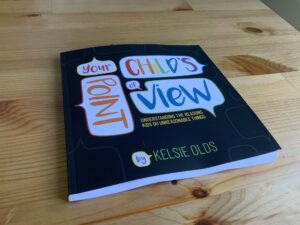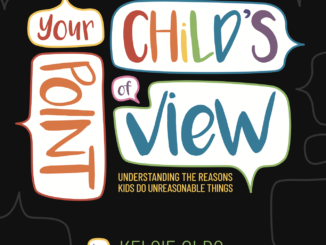(Content warning: This post contains discussion of physical child abuse.)
***
When I was nine or so, my family went on a road trip. I read all the books I’d brought with me. Bored, I picked up some parenting books someone else had brought, and read them too.
I read about the best way to train a baby to follow your commands: by setting up a training protocol, such as putting something they wanted within reach, or putting them on a visual boundary like a blanket. Then, when they reached for the thing, or tried to leave the blanket, you would say “No.” After that, you would say no and hit them. The book discussed the pros and cons of what to hit them with, where to hit them, and how to hit them so that it would hurt without leaving a mark. You would do this until they stopped trying to reach for the thing, or leave the blanket.
You might have felt any of a number of ways reading that now; you might have felt any of a number of ways reading it when you were nine.
I read it and figured it made sense.
I was wholly convinced of the belief that kids were inherently evil. Defiant, deceptive, disgusting, evil. Punishing them was how you made sure they understood how evil they were. How you broke their spirit — this was a good thing, because that word “spirit” didn’t mean, like, their joy, their spark, their zeal, but literally embodied whatever was evil in them.
I did all the internalizing I needed to make that make sense.
My book has been out for about one and a half months. It’s called Your Child’s Point of View. The pages are very visual. Half of them are big word bubbles, with the adult saying what their concern is, and a child’s point of view, saying what the child’s concern might be.
In all my writing it, it never occurred to me that a child might actually read it. I don’t know why I never thought of that. I guess I thought they’d think it was boring or dry. My own kids are really new readers, and I have a tendency to picture them; maybe I just forgot about big kids in the audience entirely. For whatever the reason, it just didn’t even enter my mind.
Then the first person told me that their kid was reading it. Then another, then another…
One person told me that their kid told them, “How does a grown-up think like me and my sister? I didn’t know grown-ups knew how to do that.”
I write a lot. I write for my job. I make sense of emotions a lot. I make sense of emotions for my job. I help other people make sense of emotions for my job.
I don’t know how to write down what emotion this evokes in my body. I don’t know the words for this intangible thing.
I can’t say, “If I read this when I was 9, I would have thought…” because, well, I wouldn’t have. No version of me at 9 in this universe could have made sense of this book. I couldn’t hear anybody saying: maybe you are good. Maybe you make sense. Maybe your spirit is beautiful.
But a different child read it and felt seen.
So maybe little me can’t see outside the bubble they lived in, but big me can see little me and write them a way out.
[Image description:
A very lovely picture of my book from a slanted angle on a wooden table backdrop. The cover is black with the title in pops of rainbow colors, “Your Child’s Point of View,” in word bubbles coming from all angles. Beneath that it’s subtitled “Understanding the Reasons Kids Do Unreasonable Things,” and also says “by Kelsie Olds”. End description.]


